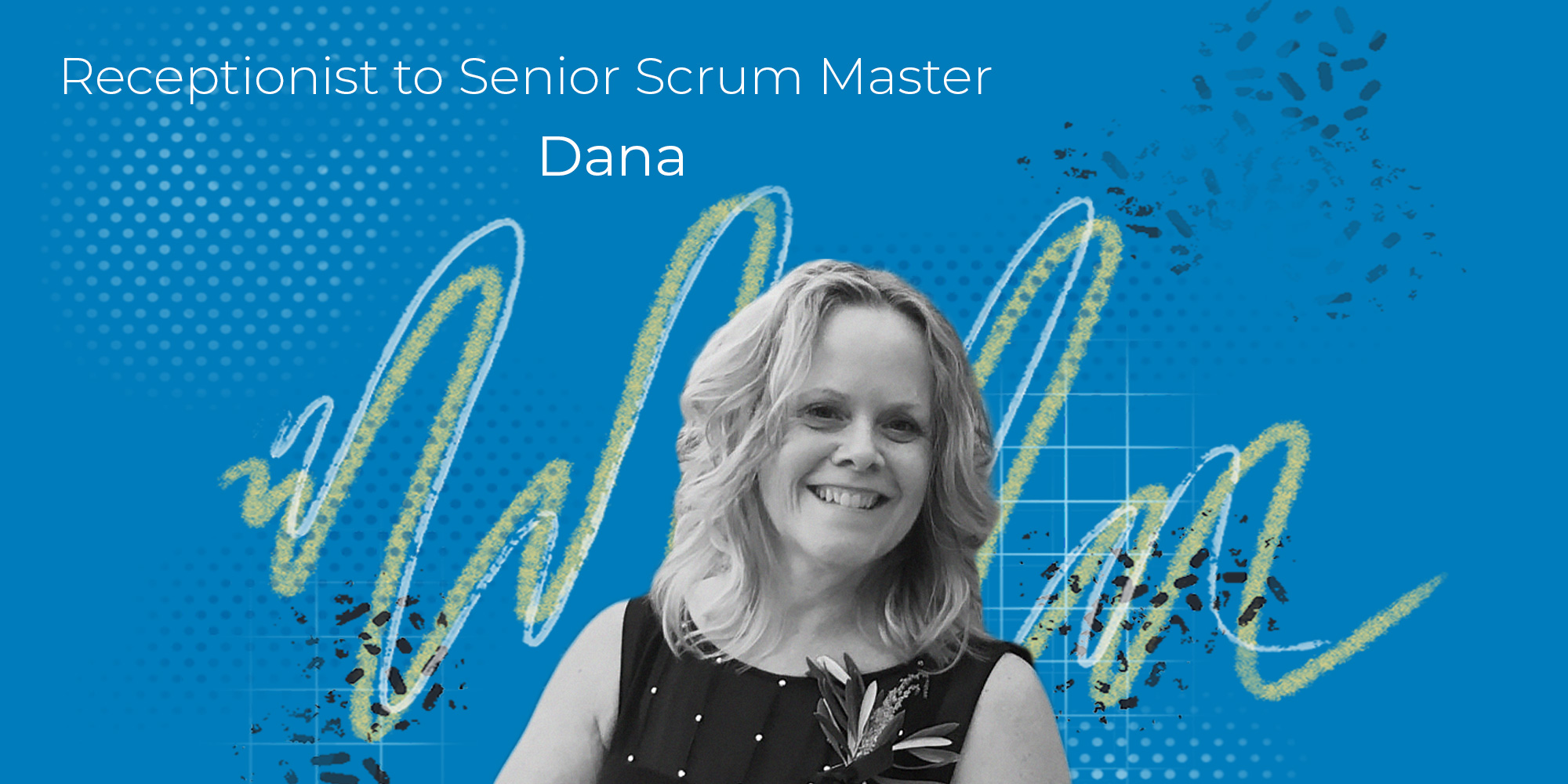
Dana Halvorson supported grieving families as a funeral director before joining Fortra as a receptionist in 1999. Over the next 23 years, her natural empathy paired with her eagerness to learn new technical skills enabled her to move into increasingly challenging roles. Today, the senior scrum master reminisces about the journey and the role of fun at work.
How did you learn about Fortra, and what was your first role?
A friend got a job at Fortra and said it was a great place to work. There was an opening for a receptionist, so I applied and was hired.
What were your first few months like?
As a receptionist, I got to know many employees and felt that I fit in right away. I answered phone calls for the support team and handled general company inquiries. I also learned a lot of new technical skills, which challenged me, but I embraced the changes and grew so much from the experience. I was a receptionist for about four months before moving up to a newly minted services coordinator position.
What type of tasks/projects did you have to complete?
As a services coordinator, I was responsible for interacting with customers who needed services, scheduling Fortra trainer visits to customer sites, and sending training materials for each scheduled customer-site training. I also organized what was then called the Robot U training at our office. I was the liaison between the customers attending our training and the trainers.
What has your journey at Fortra been like?
In 2001, I moved into the excellence system manager position to oversee our quality management system, which was ISO 9000 (later ISO 9001-2008). Fortra was the first software company in the U.S. to become ISO certified, and we were very proud of that. I scheduled compliance audits, maintained and monitored our excellence system’s processes and procedures, and was always looking for better ways to do things—continuous improvement.
In 2011, I had another opportunity I couldn’t pass up and moved to the R&D department, where I’ve been ever since. My title has evolved from project administrator to scrum master, to my current role of senior scrum master. Scrum is a framework for managing projects to keep everyone marching toward the shared goal of a product release. The scrum master is the liaison between the team and the product owner.
My role has changed as well from project management and administration to coaching teams to embrace the Agile with Scrum framework. It’s exciting and rewarding to see the evolution of team members who are new to scrum. Once they “get it,” they run with it.
What are three things you’ve learned during your time at Fortra?
Technical skills, interpersonal skills, and diplomacy. Without those, it would be difficult to move up in the company.
What in the Fortra culture stood out to you as an employee?
The fun! We had a Fun Committee that organized events for everyone in the company. We had monthly pizza day, pie day, and summer barbeques, as well as 10-year anniversary celebrations and prize drawings at company meetings.
I had the privilege of being the Fun Committee leader from 2003-2014 and even have an engraved clock to show for it. That gave me the opportunity to get to know many colleagues I still consider close friends.
What in the Fortra structure has helped you get to where you are?
Being given opportunities to move up from one position to the next. Career path options are well defined, and employees know what they need to achieve to be promoted. It’s very encouraging.
Is there anything you learned early in your career that has stuck with you?
My career path was a bit unconventional. I received my Bachelor of Science degree in Mortuary Science from the University of Minnesota. I worked in funeral service for about seven years before realizing it wasn’t my passion. However, what I learned from supporting grieving families was the importance of being kind, having empathy, and providing them with a framework to move forward from the sudden loss of a loved one.
What I learned in that role can be applied to nearly any project management or coaching position. Not only did it require strong organizational skills, but it also required being self-directed and motivated to do what’s ethical and work well with others under challenging and sometimes difficult circumstances.
Is there a memory you’d like to share from your time at Fortra?
One summer, my manager commissioned a sailboat on Lake Minnetonka near the Twin Cities in Minnesota on a workday afternoon. All the members of my department had fun sailing around the lake (with a hired boat captain, of course). We had a beautiful sunny afternoon to relax and get to know each other. It’s one of my fondest memories.
Was there something specific you did to stand out as an employee?
Exhibiting the willingness to learn, having a great can-do attitude, being self-motivated, being dependable, and working well with others.
What does your day-to-day look like?
I have daily meetings with project/scrum teams located in Armenia, Germany, the U.K., Argentina, and various locations around the U.S. I also organize meetings with the community of scrum masters across the globe where we discuss our challenges, better ways to do things, and how to keep our teams motivated.
What’s your favorite part of your work?
Working with all the people in our great, growing company. When I started at Fortra we had just under 100 employees to now over 3,000. Look how far we’ve come!
What’s your advice to newly hired employees?
Don’t be afraid to try new things and volunteer to do work that may be outside of your designated role. Keep a positive attitude. Ask questions when you’re unsure about something. There’s never a dumb question.